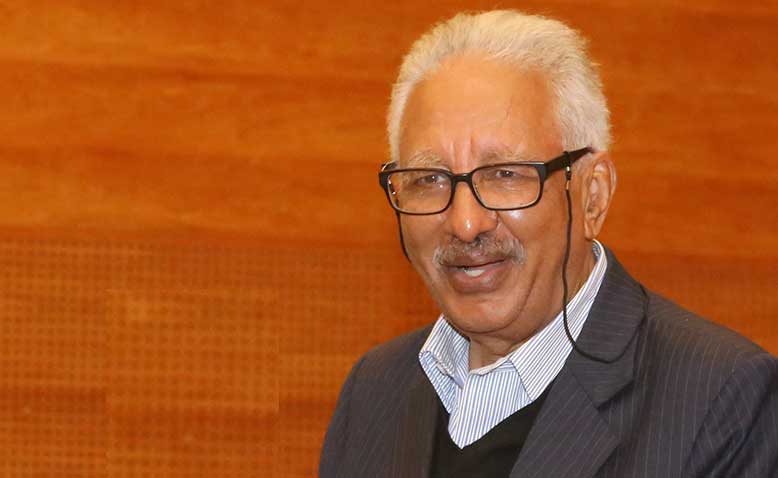
Nov 16 , 2019
By Tibebu Bekele
Studying the history of revolutions all over the world is an exercise in the study of failures. Almost all revolutions, perhaps with the exception of the American and the French revolutions, started with romantic visions of equality and prosperity for all and ended up replacing one form of oppression by another. Unfortunately, they also leave a carnage of death and destruction in their wake.
However, in spite of this unimpressive record, revolutions remain popular attractions, especially among young people around the world. From the Colour Revolutions of the early 2000s to the Arab Spring to the modern reincarnation of the Bolivarian revolutions of Latin America, street protests, often started by demanding some economic redress, get taken over by revolutionary fever.
They enjoy a limited measure of success for a little while at most before the splitting of the movements that started them. There will be fallouts between leaders until one or the other takes absolute control, often by brutally getting rid of the others. Revolution reversed, oppressor replaced, the masses betrayed again. This seems to be the same loop playing on repeat.
Why is there no sustained focus on the underlying economic disparities that started the whole thing in the first place?
In fact, closer inspection will show that the cause of oppression and inequality is almost always an economic question more than anything else. The root cause of racism is the unparalleled economic advantage that could be drawn from slavery. Most dispossession and displacement that happened in feudal societies was a result of the scramble for land – the means of production. It has little to do with what language people spoke or what their ethnic group was. Those were accidents of history. Displacements happen within even the same linguistic or ethnic group in the scramble for resources.
Therefore, the million dollar question is why there is not more passion and intensity about economic empowerment for historically disadvantaged communities.
One possible reason could be that economic emancipation is hard work. It takes time. It takes planning and cooperation. Most frustratingly to activists and political entrepreneurs who want to ride the wave of anger to power and wealth, it does not happen overnight. It is much easier to ignite the passions of impoverished and unemployed youth with promises of confiscated riches. It is easier for them that is, not the followers that pay a heavy price in life and limb.
The problem is that there is never enough loot to go around for all the foot soldiers of the revolution. Therefore, after displacing the former rulers, the new oppressors, once they have put their throne safely in place, will have no choice but to put the masses back in their place. There is little pie left after they take their lion’s share.
Instead of repeating this madness ad infinitum, how about trying to bake a bigger pie?
Now that is what the heated debate and public dialogue in Ethiopia should be about. There is no simple answer and there are different prescriptions as to how to go about it. But the starting point should be an acknowledgement that economic emancipation should be pursued with at least as much passion as political liberation.
Economic empowerment is not about confiscating resources from "others," however that is defined. It is rather about inculcating a culture of innovation and entrepreneurism in young people. It is not only to help them be self-sufficient today but to create an enabling environment for them to be able to build the companies of tomorrow that will make a lasting contribution to their communities. It is about unchaining them from the shackles of historical baggage so they can be free to create their own beautiful tomorrow.
The only option of the youth should not be seen as becoming fodder for a revolution that preys on its young. They should also be able to aspire to be the entrepreneur that will build a company that will transform their village. This should at least be on the discussion table.
PUBLISHED ON
Nov 16,2019 [ VOL
20 , NO
1020]


Viewpoints | Jul 08,2023

Viewpoints | Apr 22,2023

Sunday with Eden | Jul 08,2023

Commentaries | May 28,2022

Obituary | Feb 29,2020

Photo Gallery | 97890 Views | May 06,2019

Photo Gallery | 90114 Views | Apr 26,2019

My Opinion | 67559 Views | Aug 14,2021

Commentaries | 65888 Views | Oct 02,2021
Editorial | May 02,2024

Feb 24 , 2024 . By MUNIR SHEMSU
Abel Yeshitila, a real estate developer with a 12-year track record, finds himself unable to sell homes in his latest venture. Despite slash...

Feb 10 , 2024 . By MUNIR SHEMSU
In his last week's address to Parliament, Prime Minister Abiy Ahmed (PhD) painted a picture of an economy...

Jan 7 , 2024
In the realm of international finance and diplomacy, few cities hold the distinction that Addis Abeba doe...

Sep 30 , 2023 . By AKSAH ITALO
On a chilly morning outside Ke'Geberew Market, Yeshi Chane, a 35-year-old mother cradling her seven-month-old baby, stands amidst the throng...

May 2 , 2024
For successive generations of Ethiopia's tax authorities, the chore of tax collection...

Apr 27 , 2024
The Prosperity Party (PP) - Prosperitians - is charting a course through treacherous...

Apr 20 , 2024
In a departure from its traditionally opaque practices, the National Bank of Ethiopia...

Apr 13 , 2024
In the hushed corridors of the legislative house on Lorenzo Te'azaz Road (Arat Kilo)...

May 3 , 2024
The feel-good life coaching industry would have people believe that success is not only about showing up in the swirling whirl of modern lif...

May 4 , 2024 . By BERSABEH GEBRE
Brook Taye (PhD), the director general of the newly established Ethiopian Capital Market Authority (ECMA), has issued a stern warning to com...

May 4 , 2024 . By MUNIR SHEMSU
Dreams of an agriculture sector unshackled from the whims of rain remain tethered to the struggling Minis...

May 4 , 2024
Large public projects exceeding 250 million Br will be required to use Building Information Modelling (BI...